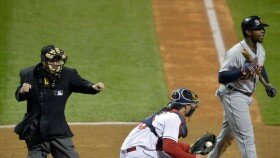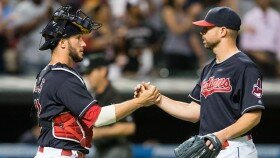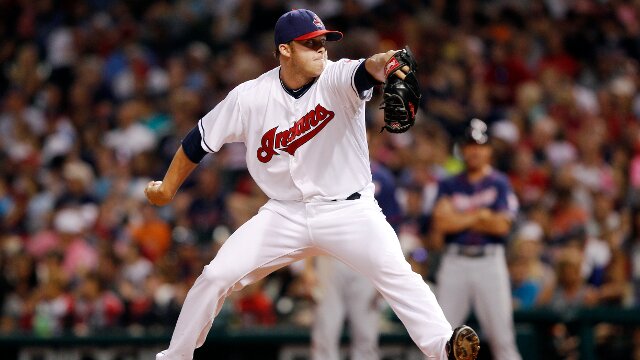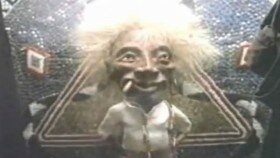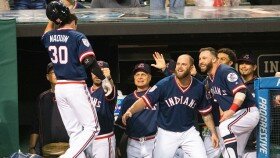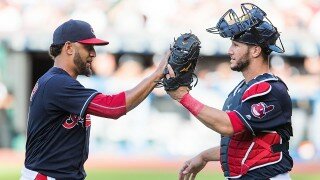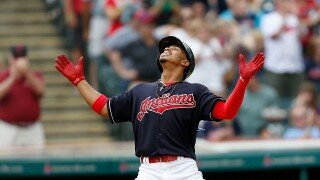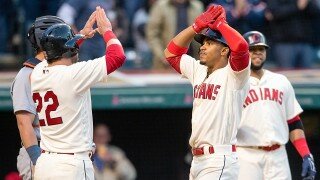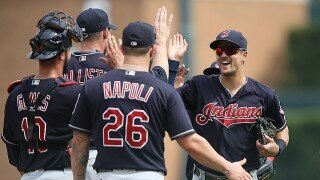If the Cleveland Indians have proved anything in their recent offseasons, it’s that they have no interest in throwing out big contracts to acquire offensive firepower. Despite a glaring need for bigger bats, the team seems intent to rely on what it has, leaning on a top-tier pitching rotation to get back to the postseason.
This past winter was no different. The Tribe made low-key signings like first baseman Mike Napoli and outfielder Rajai Davis, later adding third baseman Juan Uribe. None of these players will be a major addition offensively, instead seen as complimentary pieces who can possibly add some collective power.
Regardless, concerns remain regarding just how many runs the Indians will be able to score this year. Despite the new faces in the clubhouse, odds still favor a good number of one-run losses this coming season.
Despite this, Cleveland doesn’t seem too concerned. The front office indicated as much yesterday when it announced yet another “it’ll be great if it actually works” signing in outfielder Marlon Byrd. The vet was signed to a minor league deal, and he’ll only be paid $1 million if he actually makes the Indians’ roster.
Are there positives to find in this signing? Sure. Not a lot, but they’re there. For one, Byrd is coming off a 23-HR season. Had he been an Indian, he would’ve led the team in that category. He’s collectively hit 72 in the past three seasons, yet another number nobody on Cleveland’s current roster would surpass.
Additionally, with the Indians’ outfield looking a little worse for wear at the moment, extra help is hardly something they can afford to turn down. If Byrd ends up making the active roster, he could form a platoon in right field with Lonnie Chisenhall. The situation isn’t ideal, but it’s definitely not bad. Top it off with the fact the Indians got him on a discount, and you can see the silver linings in this acquisition.
That said, not only is signing Byrd continuing Cleveland’s trend of only making cheap investments for offensive help, it’s also another example of the team only looking for players who don’t have many years left in the game. Byrd will enter this season at 38 years old, just a couple years older than Napoli, Davis and Uribe. While he’s had a few decent years at the plate, Byrd is obviously just another short-term fix. Why the Indians continue to take fliers on baseball’s senior class is beyond me.
The fact is that Cleveland’s main weakness was offense, and nothing has changed after the Byrd signing. Could he contribute home runs to this team? Nothing from the past few seasons indicates he can’t. Still, he won’t be a game-changer, provided he even makes the Opening Day roster.
Despite the concern over a lackluster offseason, one thing you can’t knock the Indians for is consistency. They’ve gone into the past few seasons following the same pattern – rely on pitching while making just a couple of inexpensive tweaks here and there to the offense. Here’s hoping the same strategy doesn’t bring the same result, and the team isn’t once again watching the postseason from home.
 Share
Share 


